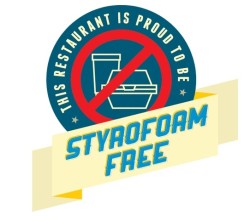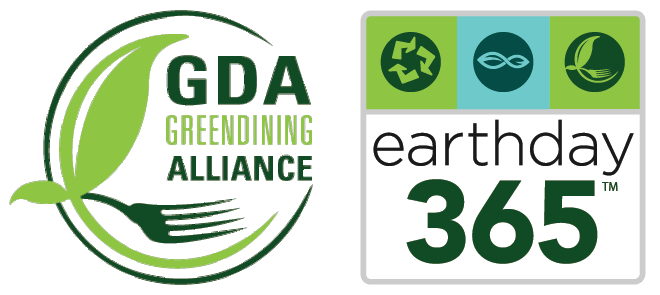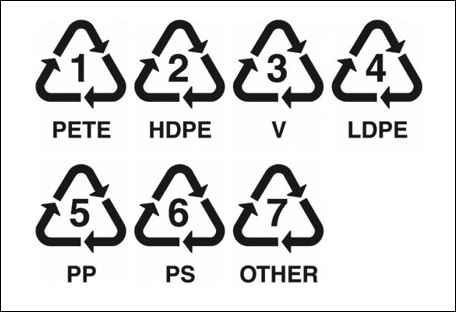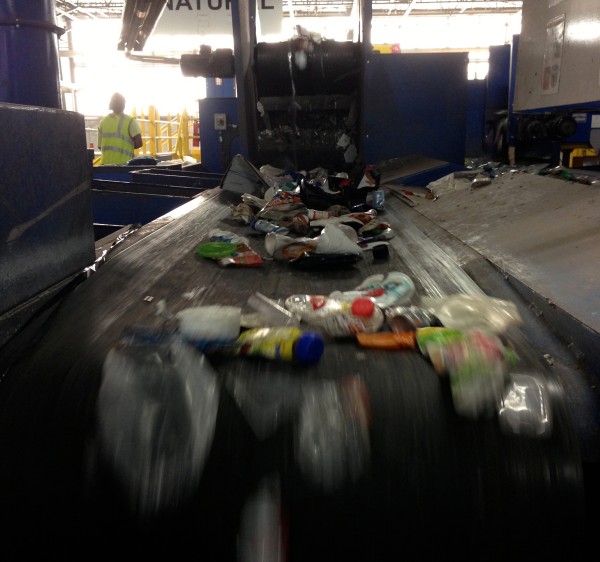 To become a member of the Green Dining Alliance, a restaurant must meet our Core Concepts, which includes banning the use of all polystyrene. Polystyrene is one type of plastic which can be identified by finding a #6 “PS” symbol, and includes all foam products like Styrofoam, and some hard plastics like disposable straws and flatware.
To become a member of the Green Dining Alliance, a restaurant must meet our Core Concepts, which includes banning the use of all polystyrene. Polystyrene is one type of plastic which can be identified by finding a #6 “PS” symbol, and includes all foam products like Styrofoam, and some hard plastics like disposable straws and flatware.
So even though polystyrene products are banned by the GDA (the entire city of New York just banned it too) and rarely recycled, it’s hard for businesses to make this commitment. But, why? Because polystyrene is so cheap!
Its popular price point has many contributing factors, including subsidies for petroleum and the fact that #6 plastic products are cheap to ship due to their light weight.
Why is banning polystyrene so important to us?
Although you may read that #6 plastic or polystyrene is “accepted” by your local recycling hauler, it is often not recoverable. This messaging is used to help simplify the recycling signage and make it easier for everyone to participate. At the Material Recovery Facility (or recycling center), #6 plastics are often sorted out, sometimes with other low-value plastics, and sent overseas. Once overseas, they are either sorted out further, melted down into a #7 “other” plastic or burned as fuel.
Many small plastic items, like most plastic utensils, are made from polystyrene. As with straws and bottle caps, these items are difficult to recycle because they don’t fall easily out of recycling sorting lines the way containers do. This debris is too small and mixed to sort and recycle, so it goes to the landfill.
Foam items and #6 hard plastics also have very little value as a post-consumer commodity. There is not a strong buyer’s market to purchase sorted polystyrene from a recycling facility. They also have a higher melting temperature, adding to the cost of its recycling process.
All of these factors contribute toward the complicated case of recycling polystyrene, and decrease the likelihood of it being recycled or used in post-consumer recycled product manufacturing in the United States.
Plastic, plastic, everywhere!
We are surrounded by plastic. Look at the area around you and consider all the little plastic pieces you might overlook normally. Before World War II, plastics were rare, but now it’s hard to find items without plastic. Here are some quick plastic facts from Earth Day Network about our poly-world today:
-
Over 300 million tons of plastic are produced every year
-
Over the last 10 years, we’ve produced more plastic than we did in the entire 20th century
-
Millions of tons of greenhouse gas emissions are released from the production of plastic
-
Some of this plastic ends up in landfills, where it slowly breaks down, leaching harmful chemicals into the soil and groundwater
-
A huge portion of the plastic ends up on our streets, in our parks, and in our oceans.
-
Over 100,000 marine animals and 1 million birds die each year from ingesting plastic
When plastic isn’t disposed of properly, it ends up deteriorating on land or in water. Picture that McDonald’s foam coffee cup in a ditch on the side of the road out near the Missouri River…. It doesn’t take long before the foam gets brittle and starts breaking up into smaller and smaller pieces – into our water and our food.
When ingested by humans, petroleum-based products like plastic cause our cells to change. They are considered carcinogenic, which means cancer-causing. And this is what we carelessly use and discard at an alarming rate. Not just disposing of plastics in the right way is important, but making sure that we limit our single use of such items and make wise selections is key for our planet’s future.
Stand with us against polystyrene!
 For human and environmental health, ending the use of polystyrene is important. We’re building a community of individuals and businesses that recognize the harmful effects of #6 plastic and Styrofoam. Join us in encouraging restaurant owners to buy more compostable and recyclable products, to support a strong renewable resource industry.
For human and environmental health, ending the use of polystyrene is important. We’re building a community of individuals and businesses that recognize the harmful effects of #6 plastic and Styrofoam. Join us in encouraging restaurant owners to buy more compostable and recyclable products, to support a strong renewable resource industry.
Next time you have an opportunity: Refuse it! Say no to #6! Every time you spend a dollar, you cast your vote for the kind of world you want to live in. Support local companies who offer environmentally-responsible options whenever you can.
References: Most of this information comes from area Material Recovery Facilities, Republic Services, and from reputable online sources like earth911.com.




